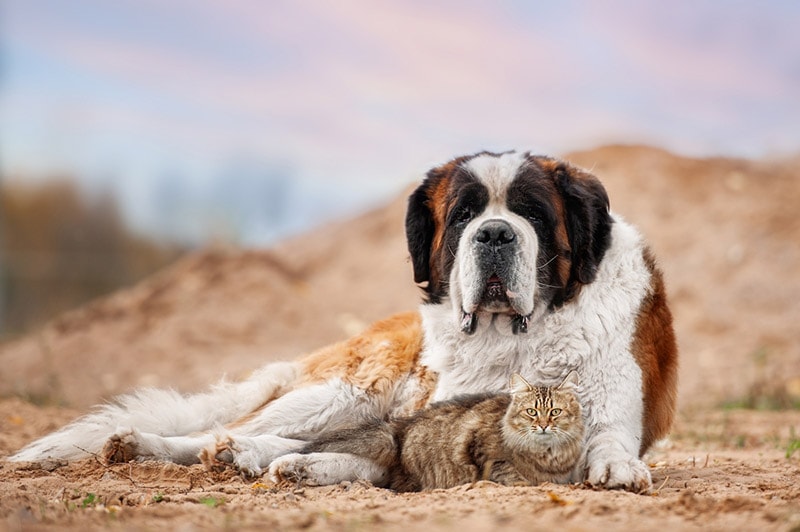How Long Do Shiba Inus Live? Average Lifespan, Data & Care
By Hanh Duong
Updated on
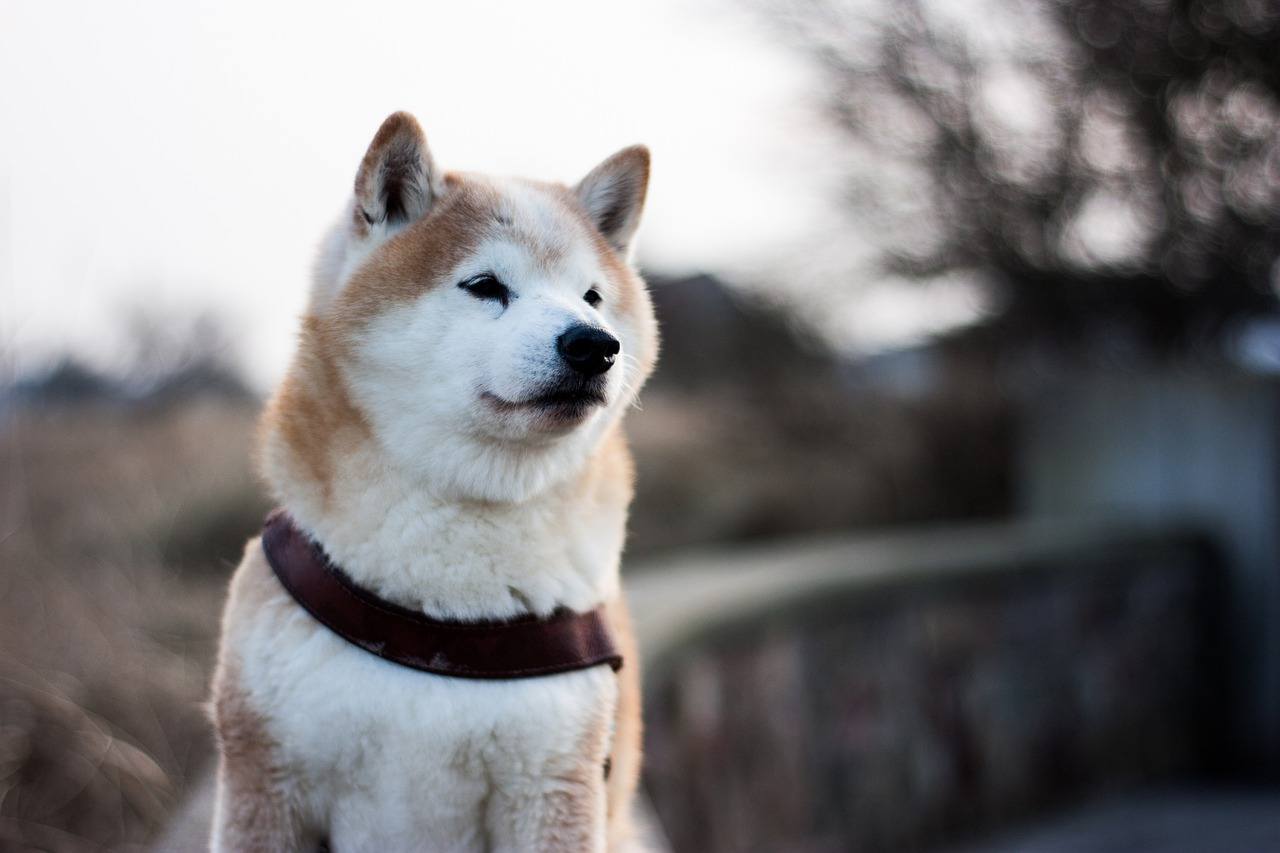
Click to Skip Ahead
While having their roots in Japan, the Shiba Inu is today one of the most popular dog breeds worldwide. When you get a Shiba, you will immediately bond with your new dog and may be concerned about what’s to come—how long will your pup live? A Shiba Inu’s lifespan typically ranges from 12 to 15 years, though with the proper care, that number may increase significantly. Would you like to know how? Keep reading!
What’s the Average Lifespan of a Shiba Inu?
A normal Shiba Inu can live about 12 to 15 years. For a medium-sized dog, this is a pretty good lifespan, indicating that there aren’t many genetic problems with this breed as a whole.
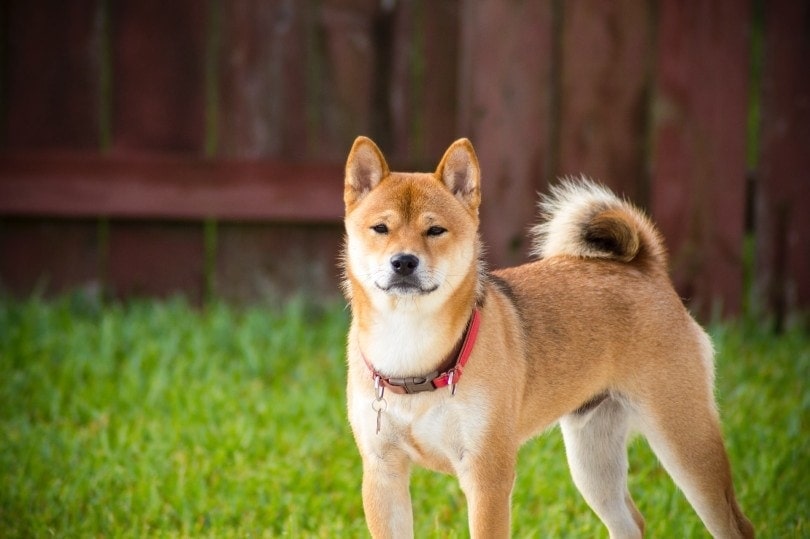
Why Do Some Shiba Inus Live Longer Than Others?
1. Nutrition
The lifespan of dogs can be increased if they have a high-quality diet that promotes the health of their bones and organs. A premium dog food brand with great protein sources and balanced nutrition will enable your Shiba Inu to live a longer and happier life as your companion.
Remember that being overweight can shorten a dog’s lifespan, so it’s vital to only feed your Shiba the right amount. Your vet can help you determine if your pup is at a healthy weight.
2. Get Regular Vet Check-Ups
Even though Shiba Inus are generally a strong and healthy breed, these dogs can occasionally suffer from some health conditions. But you can significantly increase the chances of extending the lifespan of your beloved pet by maintaining a healthy lifestyle and visiting the vet regularly.
Keep an eye out for any signs of discomfort and take your furry friend to the vet if in doubt. It’s best to bring them in for an examination at least twice a year, even if they seem healthy. Since many genetic health disorders don’t manifest until year two, any problems should be detected as early as possible. This way, you can help them prevent illnesses and prolong their lifespan.
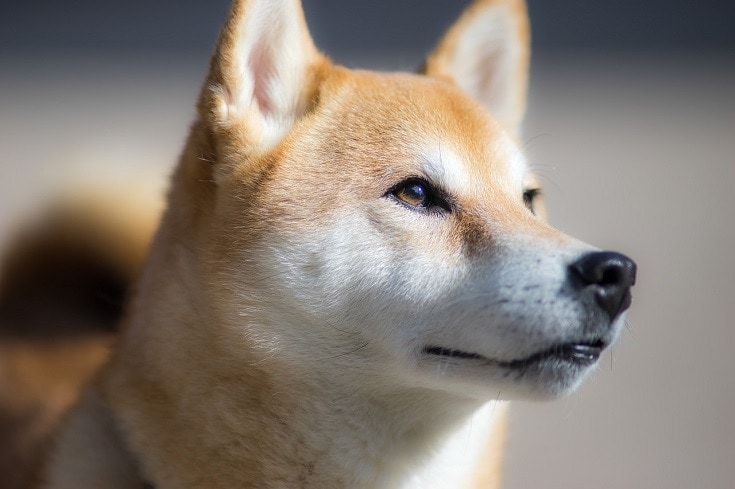
3. Training
Your Shiba Inu’s chances of preventing accidents and living a longer life will increase if you teach them to recall on cue to keep them under control and safely with you. Additionally, the mental stimulation and happiness that training and socializing give your dog also benefit their health.
4. Exercise
Giving your Shiba Inu daily exercise and activities is one of the best methods to prolong their lifespan. You may want to explore a few ways to interact with them and introduce your dog to new activities to keep them active and healthy.
A Shiba Inu needs to exercise for at least an hour every day. They are active canines, so your Shiba may enjoy playing fetch, hurdles, ball games, walking, and many other activities. Walking your dog is very important because it also provides socialization, which is vital for training.
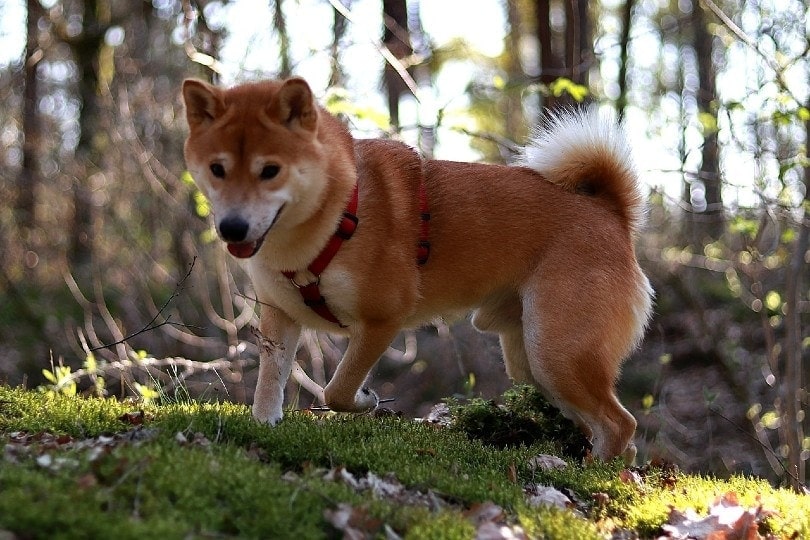
The 3 Life Stages of a Shiba Inu
1. Puppy: 0–12 Months
Puppyhood is perhaps the most crucial period in your dog’s behavioral development and socialization. During this stage of life, inappropriate behavior is much easier to correct. Putting your puppy on a plan for vaccinations and parasite control early on is also very important. Your vet will tell you the best course of action given the particular circumstances of your new Shiba Inu.

2. Adult: 12 Months–8 Years
This stage begins when a dog’s weight and height reach the standard for an adult of the Shiba Inu breed and gender. This time typically marks the end of your dog’s growth, but their size and shape could fluctuate slightly during early adulthood.
To keep adult Shiba Inus engaged and happy, you should give them regular exercise and stimulating activities. Thankfully, dogs in this stage are typically in the best physical health of their life, but they should still have a few annual trips to the vet to check for potential health problems.
3. Senior: 8–15 Years
You will need to monitor your Shiba’s health even more closely as they reach this stage of life. For elderly dogs, routine vet visits are crucial because they help detect disease early. Many illnesses and changes that affect senior dogs can be successfully managed, leading to a better quality of life and a longer lifespan.
Each stage of your dog’s life has its own health challenges, rewards, and memorable experiences. Therefore, it’s a great idea to make the most of each moment and actively support your companion at different stages.
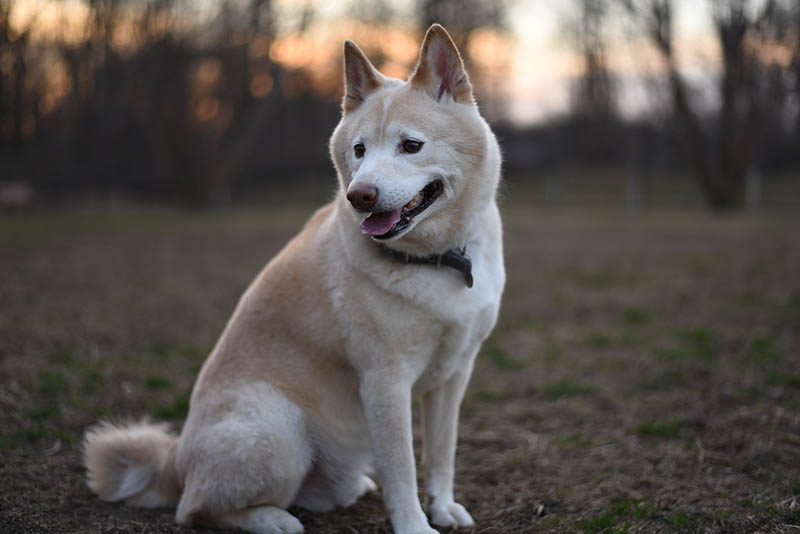
How to Tell Your Shiba Inu’s Age
The best way to determine your dog’s age is to check their teeth. When puppies are under 4 weeks old, they probably won’t have any, while those between 4 and 8 weeks of age may have sharp, temporary teeth. Your Shiba’s permanent teeth will start to grow at 3 to 4 months, and they will stay healthy and pearly white until they are about a year old.
Their teeth could exhibit some wear after the first year of life. You may initially notice stains on the teeth directly behind the mouth. Most dogs will have slightly yellowed teeth at around 3 years of age.
Dogs over the age of 5 typically have some staining, less pointy teeth or even slightly worn down ones, and a higher risk of dental disorders. Moreover, dogs over 10 years old frequently have loose, broken, or missing teeth.
While you can’t tell your dog’s exact age by looking at their teeth, there are also many other ways to determine it, like examining their coat, looking at their eyes, considering their muscles and build, paying attention to their hearing, and noticing mobility and activity levels.
Conclusion
The Shiba Inu is a great dog breed with many good qualities. With lots of care and dedication, your Shiba Inu will have a long and happy life. The key to having your dog live out their entire lifespan is taking care of them with the proper nutrition, exercise, and medical care. And of course, enjoy the company of your furry friend!
Featured Image Credit: Marcel Heidemann, Pixabay



